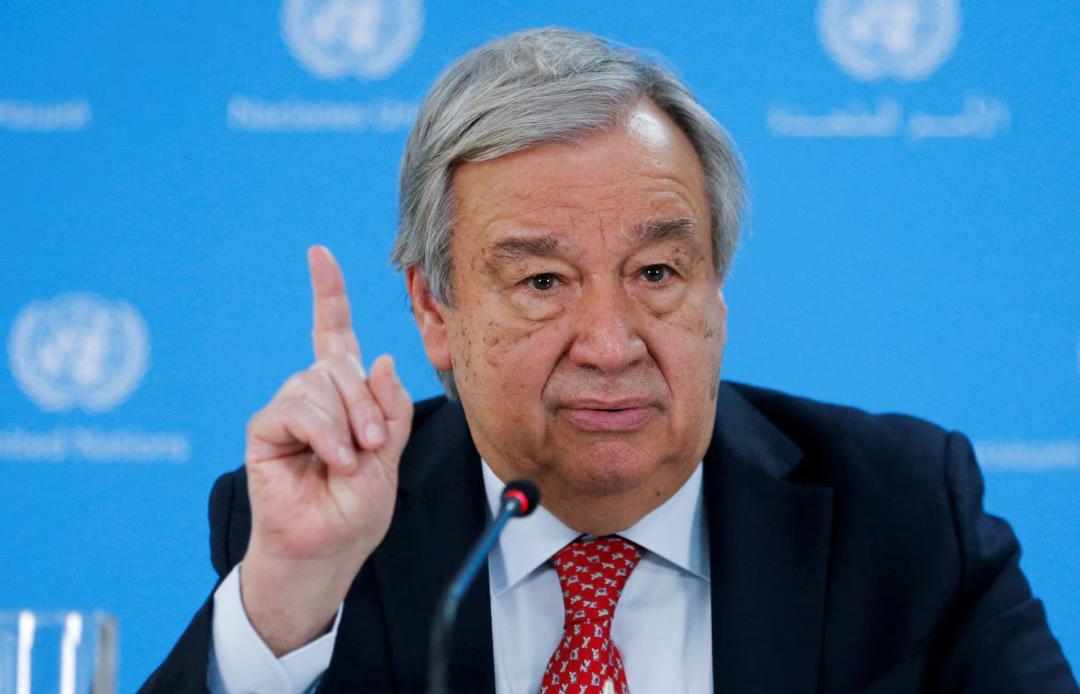
Starvation is Knocking on Every Door in Gaza: UN Chief Guterres
The ongoing humanitarian crisis in Gaza has reached a critical point, with the United Nations Secretary-General Antonio Guterres warning that starvation is knocking on every door. During a recent debate in the UN Security Council, Guterres expressed his deep concern over the dire situation in Gaza, stating that the level of death and destruction is unprecedented in recent times.
Gaza, a coastal region in the Middle East, has been under Israeli blockade since 2007. The blockade has led to severe restrictions on the movement of people and goods, resulting in a devastating impact on the local economy and daily life. The situation has been exacerbated by the recent escalation of violence between Israel and Palestinian militant groups.
Speaking at the UN Security Council, Guterres emphasized the urgent need for action to address the humanitarian crisis in Gaza. He stated, “We need look no further than the horror show in Gaza, with a level of death and destruction without parallel in recent times.” The UN chief highlighted the alarming rise in malnutrition rates, with many Palestinians struggling to access basic necessities like food and medicine.
Guterres also lamented the collapse of the humanitarian system in Gaza, saying, “Malnourishment is soaring. Starvation is knocking on every door…And…we are seeing the last gasp of a humanitarian system built on humanitarian principles.” His words echoed the desperation and frustration felt by the people of Gaza, who are facing unprecedented challenges in accessing essential services and supplies.
The humanitarian crisis in Gaza is a direct result of the Israeli blockade, which has been widely criticized by human rights organizations and the international community. The blockade has resulted in widespread poverty, unemployment, and food insecurity, with many Palestinians struggling to survive.
According to the United Nations Office for the Coordination of Humanitarian Affairs (OCHA), more than 70% of Gaza’s population relies on international aid to survive. The situation is further complicated by the frequent power outages, which have left many Palestinians without access to clean water, sanitation, and healthcare.
The blockade has also had a devastating impact on Gaza’s healthcare system, with many hospitals and medical facilities struggling to function due to a lack of resources and supplies. Patients are often forced to travel to other countries, such as Egypt or Israel, for medical treatment, which is often expensive and inaccessible to many Palestinians.
The situation in Gaza is not just a humanitarian crisis, but also a political and economic one. The blockade has led to widespread unemployment, with many Palestinians struggling to find work and support their families. The economy has also been severely impacted, with many businesses and industries struggling to operate due to the restrictions on trade and movement.
The international community has called for the Israeli blockade to be lifted, and for immediate action to be taken to address the humanitarian crisis in Gaza. The United Nations has expressed its support for a two-state solution, which would see the establishment of an independent Palestinian state alongside the state of Israel.
In conclusion, the situation in Gaza is a dire one, with starvation and malnutrition threatening the lives of many Palestinians. The Israeli blockade has been widely criticized, and it is imperative that the international community takes immediate action to address the humanitarian crisis. The words of UN Secretary-General Guterres serve as a stark reminder of the urgent need for action, and the devastating consequences that will follow if we fail to act.






